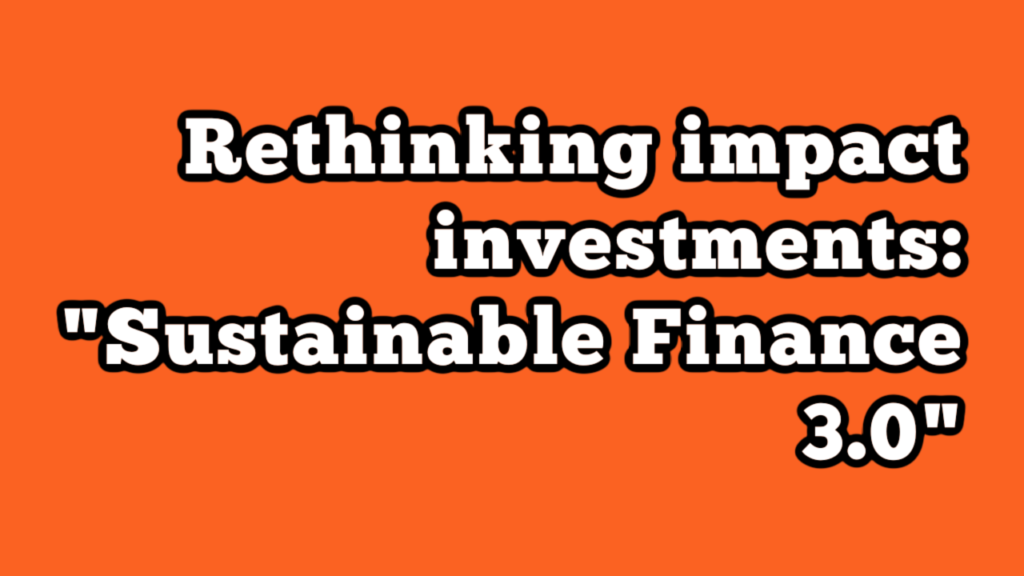Rethinking impact investments: “Sustainable Finance 3.0”

In this note, Harald Walkate does an amazing job summarizing this paper entitled “Impact investments: a call for (re)orientation”:
– propose distinguishing between impact-aligned and impact-generating investments; and for the latter there must be a *causal* effect
– see 3 phases in ESG history: Sustainable Finance (1.0) motivation is purely ethical, focus on exclusions (2.0) mainstreaming of ESG, focus on financial risk (3.0) re-orientation towards ‘impact’ (this is what they’re calling for in the title!)
– argue that, to move from Sustainable Finance 2.0 to 3.0, putting *real* impacts at the center of the debate is required
– say debating “what exactly a truly sustainable investment is” is pointless; instead we must evaluate how impactful investments are
– define #impactinvestment as “focusing on real-world changes in terms of solving social challenges and/or mitigating ecological degradation”, and impact washing as “the dilution of the term ‘impact investing’ by using the term ‘impact’ as a marketing tool to attract capital or boost reputations without actually focusing on material solutions”
– point to limitations of data: is not at the core of impact-generating investing
– propose 3 mechanisms for impact: 1) provide additional capital allowing firms or projects to generate impact 2) focus on firms that establish forward-looking targets towards impact 3) prompt firms to change by utilizing 2 post-investment decision approaches: voting & ESG engagement
– define #materiality and talk about its importance
– talk about limitations of (& confusion around) #intentionality & #additionality concepts
– say product specifications must provide detail of how investments achieve better ESG performance / contribute to #sdgs (what I would call “narrative”)
– offer some #sfdr criticism: “current regulatory efforts … regarding sustainability related disclosures … may benefit from a precise and applicable definition of what impact-aligned and -generating investments are and what they are not”
